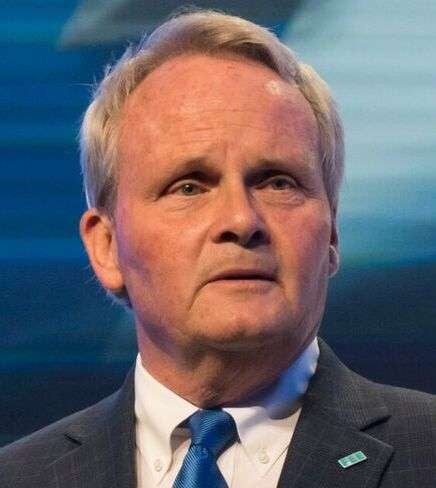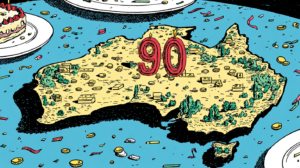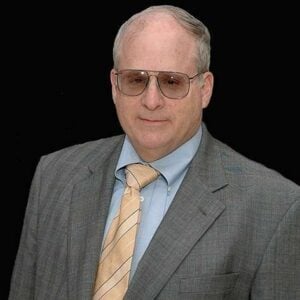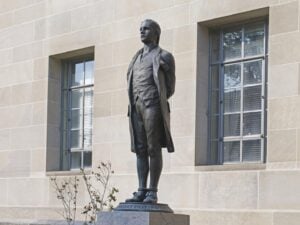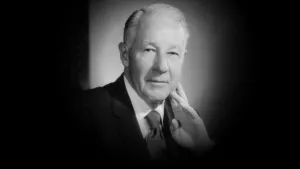On March 28, Vargas Llosa turns 87.
In his remarkable new book, The Call of the Tribe, the Peruvian Nobel laureate Mario Vargas Llosa explains how far his intellectual journey has taken him. In the 1950s and 1960s, he was a socialist who even flirted with Cuban communism. Thanks to an open and observant mind, he got over that. For 50 years now, he has championed the freedom and free markets of classical liberalism. He writes,
Equality before the law and equality of opportunities do not mean equality of income…For that would be possible only in a society run by an authoritarian government that would “equalize” all citizens economically through an oppressive system, doing away with different individual capacities, imagination, inventiveness, concentration, diligence, ambition, work ethic, and leadership. This would imply the disappearance of the individual, subsumed into the tribe.
The Call of the Tribe’s first chapter is worth the price of the book by itself. From there the book gets even better. The author devotes each of the subsequent seven chapters to the intellectuals whose work turned him from a fatuous young Marxist to a thoughtful, mature, classical liberal: Adam Smith, José Ortega y Gasset, F. A. Hayek, Karl Popper, Raymond Aron, Isaiah Berlin, and Jean-François Revel. I recommend it enthusiastically.
On March 28, Vargas Llosa turns 87. This update of an earlier essay I wrote for his 85th birthday in 2021 is my way of again sending happy birthday wishes to Latin America’s Grand Old Man of Freedom.
As the coronavirus exploded across the globe in March 2020, Vargas Llosa drew fire from the Chinese communist regime when he asserted that the pandemic might not have happened if China “was a free country and democratic rather than a dictatorship.” (You learn much about a man simply by who his enemies are.)
Writing for newspapers in Peru and Spain, he noted what the world now knows as indisputable fact, namely, that “at least one prestigious doctor, and maybe several, detected this virus in plenty of time and instead of taking the corresponding measures, the government tried to hide the information and to silence that voice, or those sensible voices, and tried to stifle the information, as do all dictatorships.”
The “prestigious doctor” to whom Vargas Llosa alluded was 34-year-old Dr. Li Wenliang, an early victim of both the virus and the communist kleptocracy that tried to hide it.
The lying tyrants in Beijing took time out from their genocide against Uighurs, their persecution of Christians, their likely release (whether by accident or intent) of the COVID virus from a Wuhan lab, their crushing of freedoms in Hong Kong, and their badgering of Taiwan to rebuke their Peruvian challenger for his “arbitrary defamation” and “irresponsible and prejudiced opinions.” He deserves to wear those accusations as a badge of honor.
Peru missed an opportunity for greatness when its voters narrowly failed to elect Mario Vargas Llosa their President in 1990. This is a man who was smart enough to reject socialism when he saw the tyranny and deprivation it produced in places like Cuba. He is recognized the world over as one of Latin America’s greatest novelists of recent times.
More recently, the people of Peru jumped off the cliff for socialism when they elected “democratic socialist” Pedro Castillo their President in 2021. When men or women of Castillo’s persuasion come to power, their socialist component takes priority over the democratic one and freedoms begin to disappear. Castillo barely made it through a year in office when, in December 2022, he was impeached and removed for attempting a very undemocratic coup. Peruvians should have listened to Vargas Llosa years ago, in which case they might have avoided this painful episode.
Thirteen years ago, Vargas Llosa received the Nobel Prize for Literature “for his cartography of structures of power and his trenchant images of the individual’s resistance, revolt, and defeat.” Speaking truth to power is a frequent motif in his novels and essays; it is also a personal commitment in his own life as well.
In his Nobel lecture in Stockholm on December 7, 2010, he argued that the foundation for good literature is freedom of expression. Titled, “In Praise of Reading and Fiction,” he said that the most important thing that ever happened to him was learning to read at the age of five. Reading, he explained, “changed dreams into life and life into dreams and placed the universe of literature within reach of the boy I once was.” He soon realized that “for literature to flourish, it was first necessary for a society to achieve high culture, freedom, prosperity and justice.”
One reviewer of the lecture declared it to be “a resounding tribute to fiction’s power to inspire readers to greater ambition, to dissent, and to political action.”
In honor of Mario Vargas Llosa’s 87th birthday, I share the following excerpts from his Nobel lecture. I hope readers will join me in wishing him many more years of putting his pen to work for the good of humanity.
_____
We invent fictions in order to live somehow the many lives we would like to lead when we barely have one at our disposal. Without fictions we would be less aware of the importance of freedom for life to be livable, the hell it turns into when it is trampled underfoot by a tyrant, an ideology, or a religion. Let those who doubt that literature not only submerges us in the dream of beauty and happiness but alerts us to every kind of oppression, ask themselves why all regimes determined to control the behavior of citizens from cradle to grave fear it so much they establish systems of censorship to repress it and keep so wary an eye on independent writers.
_____
Since every period has its horrors, ours is the age of fanatics, of suicide terrorists, an ancient species convinced that by killing they earn heaven, that the blood of innocents washes away collective affronts, corrects injustices, and imposes truth on false beliefs. Every day, all over the world, countless victims are sacrificed by those who feel they possess absolute truths.
_____
We should not allow ourselves to be intimidated by those who want to snatch away the freedom we have been acquiring over the long course of civilization. Let us defend the liberal democracy that, with all its limitations, continues to signify political pluralism, coexistence, tolerance, human rights, respect for criticism, legality, free elections, alternation in power, everything that has been taking us out of a savage life and bringing us closer—though we will never attain it—to the beautiful, perfect life literature devises, the one we can deserve only by inventing, writing, and reading it. By confronting homicidal fanatics, we defend our right to dream and to make our dreams reality.
_____
Happy 87th birthday, Mario Vargas Llosa!
(An earlier version of this essay appeared at El American.)

